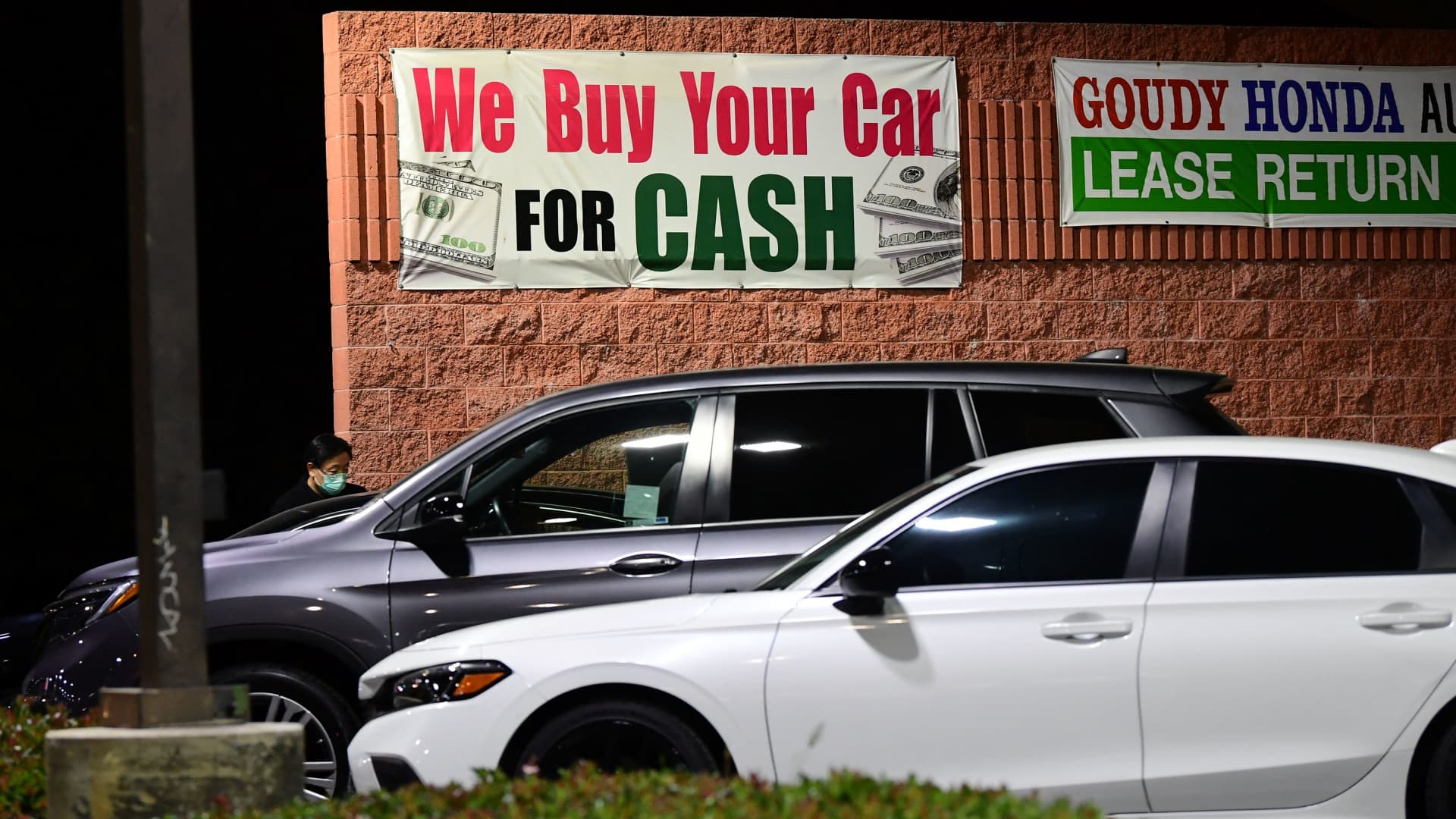DETROIT – Wholesale used-vehicle prices have notably fallen from a record high, set in January, signaling the worst of sky-high prices related to higher inflation in the U.S. may be behind us.
Cox Automotive said on Friday that its Manheim Used Vehicle Value Index, which tracks prices of used vehicles sold at its U.S. wholesale auctions, declined 1% in April from March – marking the third straight month of declines from the first month of the year.
“We clearly have returned to vehicles depreciating again. That’s a good news story for both inflation and for consumers looking to buy a vehicle,” Jonathan Smoke, chief economist at Cox Automotive told CNBC.
Wholesale vehicle prices have dropped 6.4% since the January record. However, prices are still extremely high, and the index remains up 14% from a year ago.
The drop-off in pricing comes as Manheim estimates used retail sales declined 13% in April from March, suggesting demand is easing amid the record-high prices.
Automakers for more than a year now have been battling through a semiconductor chip shortage that has sporadically halted production of new vehicles, causing record-low inventories of vehicles and higher prices. The circumstances have pushed many buyers into the used car market.
Smoke expects used vehicle prices to remain elevated but return to “fairly normal patterns,” with the potential for a few modest price increases later in the year.
“It’s potentially becoming a bit deflationary in that regard,” Smoke said, adding that doesn’t necessarily mean there’s going to a massive price correction. “This is not a commodity market that people are speculating, and used vehicles are assets that actually provide utility to folks.”
“We had an unusual circumstance over the last two years that stimulated demand, and we have limited supply,” he said.
Such declines are good news for the Biden administration, which has blamed much of the rising inflation rates in the country on the used vehicle market. In the past 20 years, used cars’ contribution to inflation averaged zero. In January, it contributed more than 1% on a year-over-year basis, according to data from the U.S. Bureau of Labor Statistics.
Persistent inflation has sent prices rising to historic levels over the past year. The trend has been politically damaging for the Biden administration and has stoked fears of “stagflation,” an unwanted mix of rising prices and stagnant economic growth.
– CNBC’s Kevin Breuninger contributed to this report.

